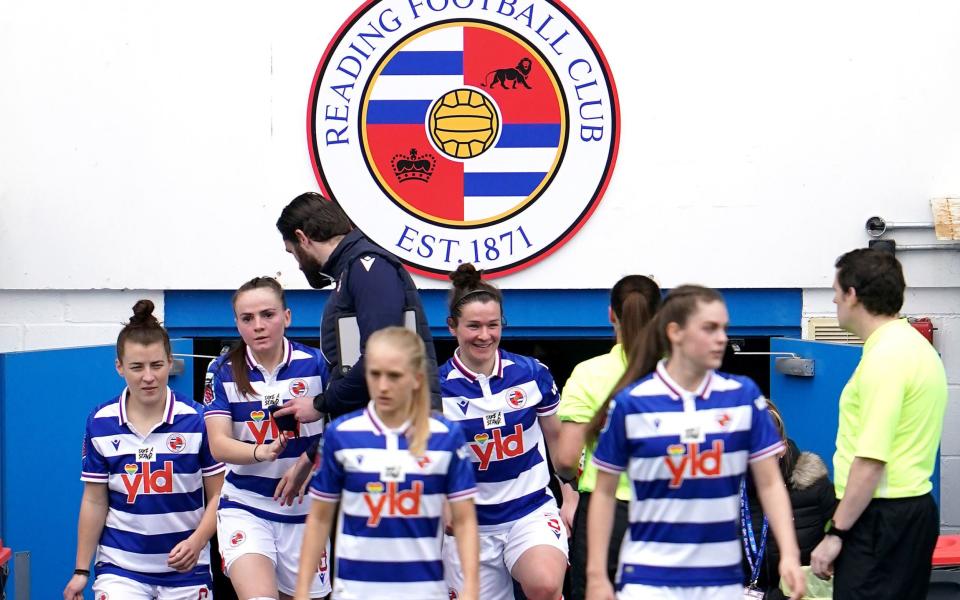Reading criticised for ‘backwards step’ after going part-time following WSL relegation

Reading will operate on a part-time basis following their relegation from the Women’s Super League – a move that has been criticised as a “backwards step” for the women’s game.
Reading dropped down to the Championship last month when they lost to Chelsea on the final day of the WSL season, bringing an end to their eight-year stay in the women’s top flight.
As the only WSL side without the lucrative backing of a men’s Premier League club, Reading’s financial struggles have been well documented in recent years. A decade ago, funding the women’s arm of the Berkshire club cost just over £100,000 a season, but that number has grown exponentially with the increased profile of women’s football.
A scale-back in funding for the women’s side was also highly likely given that Reading’s men’s team were relegated to League One for the first time in 20 years last month after being deducted six points in April following a breach of the English Football League’s financial rules.
However, the club’s decision to revert to a part-time model was heavily criticised within hours of it being announced on Tuesday. Rachel Furness, the Northern Ireland and Bristol City striker, wrote on social media: “Such a sad day that this is STILL happening in women’s football. Really feel for people who I know [are] associated with this club. Another let down and backwards step in what we thought was a growing and progressive sport.”
In a lengthy statement, Reading highlighted that all areas of the club had been under financial strain – stressing how the men’s first-team wage bill has been halved since 2019 – adding that they would now focus on building a “sustainable” model for the women’s team.
“We recognise that the women’s game is making huge progress,” the club said. “However, despite seeing a considerable spike in interest following the success of England’s women in the Euros last summer, an increased average gate for Reading FC Women and a boost in sponsorship and broadcast revenue earned as a result, our owner still needed to provide just under £1 million to finance Reading FC Women in 2022-23. In addition, relegation to the Championship will result in a significant drop in broadcast fees and central funding from the FA.”
Dai Yongge, the Reading FC owner, has invested approximately £6 million across a five-year period to keep the club in the top flight – although that sum is significantly smaller than the WSL’s so-called ‘big four’ of Arsenal, Chelsea, Manchester City and Manchester United.
By switching to a part-time model, Reading’s prospects of bouncing back up from the women’s second tier at the first time of asking have also been dealt a significant blow. While the women’s Championship is still technically semi-professional, an increasing number of teams are already operating on a full-time basis.

 Yahoo Sport
Yahoo Sport 




































































